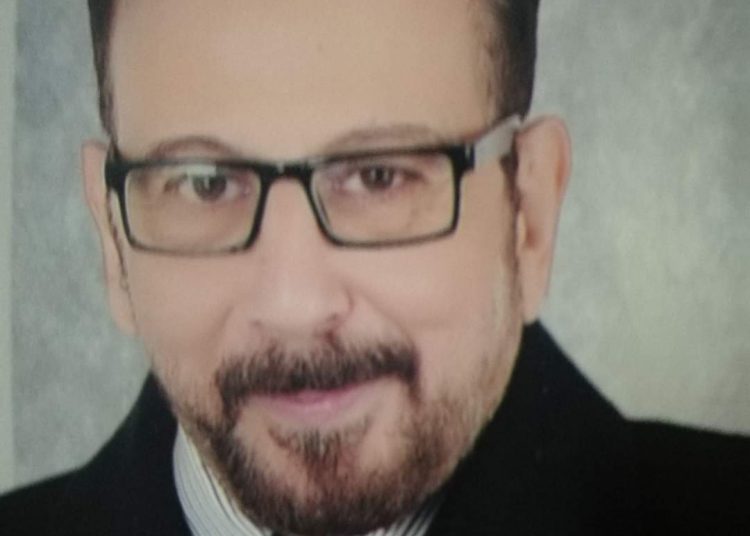By Abdel Monem Fawzi
Africa is a continent with a high linguistic diversity. Most African countries have their own languages or variety of languages.
Experts confirm that there is a strong link between language and national identity. Losing your language means weakening or even forgetting the social identity.
So, we have a serious problem when we see more than 2,000 languages being spoken across the continent, but there is a tendency to see English and French – the languages of the countries which colonised most of Africa – as those needed to succeed. As a result, some choose to abandon their mother tongue. The problem is young Africans are often told that they need to speak English or French in order to succeed.
Nevertheless, when a Frenchman or a Spaniard or even Russian cannot speak English, Africans respect him.
But when an African man can’t speak English, Africans consider him a joke, illiterate, dumb and stupid.
That’s the level or extent of damage we have suffered as a people.
We use English as a yardstick to measure the intelligence of our people, including children.
In our schools, children are made to believe they’re stupid just because they cannot speak a language alien to their ancestral roots.
The problem is the languages taught and spoken at school are relics of the colonial era and many children, especially those in rural settings, enter the all-English, French or Portuguese language schools with little prior knowledge.
It’s counterproductive, say educational experts. If you want to find a measure to prevent children from learning, you have already found that by teaching in a language that they don’t hear around them. It’s better to start with the mother tongue or another language the children are familiar with. Imagine starting school and not being able to understand your teacher.
That’s a reality for many African first-graders who speak their mother tongues at home and are taught in English, French or Portuguese at school.
They’re spoken at home, on the street and perhaps on the local radio and TV stations, but very few have made it into the classroom.
There are many reasons for this sad state of affairs. One seemingly common reason often cited by those in power and those responsible for crafting their countries’ language policies revolves around the issue of Africa’s multiplicity of languages.
Regrettably, African people’s negative attitudes towards their own languages also plays a role in the marginalisation of indigenous languages. It is generally accepted by many Africans that there are no economic incentives linked to learning and mastering indigenous languages. Parents, including those from low-income brackets, will advocate for their children to be taught in colonial languages instead of indigenous ones because of the economic benefits and prestige associated with the former. It is this general attitude towards African languages that often makes it difficult for some states to fully establish legal and policy frameworks aimed at elevating African languages to the same level as their European counterparts. In some African countries, it is not unusual to find locals who were born and raised in Africa and have never been to Europe but can only speak Portuguese and French and claim to have no knowledge of any local indigenous dialects. This is a clear manifestation of the effects of European colonialism on the psyche of some Africans.
Another reason often advanced by African language policy-makers is the cost involved in developing orthographies for such languages, instead African governments opt for the use of colonial languages because they are already developed and are easy to implement in all aspects of governance.
The problem is many African governments continue to marginalise their own languages because of what is referred to as “elite closure”. Scotton (2010) defines elite closure as a “linguistic divergence created as a result of using a language which is only known to or preferred by the elite, in this case English. This divergence may be purposeful, as a measure of control”. Forcing the common people to use a colonial language that they have not mastered well is one way of limiting the masses from accessing state resources.
Language is one of the factors that helps to create a sense of strong cultural identity and a sense of belonging to a society. In the current debate and search for answers on the causes of our economic under-development, the contribution or the lack of it of language should be one of the areas for exploration.
Experts assume that the use of one’s language enhances the development and articulation of ideas specially for economic development. The reason is that rapid education and economic rise in the Far Eastern and Indian sub-continent because they hold on to their tongues and their pride in themselves and their cultures.
There is strong evidence to show that one’s own language can contribute in development.
We have to admit that centuries of European colonialism have resulted in many Africans feeling less of themselves and having less confidence in everything African including their languages and culture.
The wrong thing we have done is we have made the languages of Europe as if they are the only ones which can bear knowledge, intelligence and everything else.
The problem is knowing only English and French creates an attitude that knowledge comes from outside. That all is good and everything else comes from outside that’s created a mentality in Africa where even African leaders look for validation from the West.
Simply put, we have to start with our mother tongue, then, know whichever is the lingua franca or the language which can enable people from different linguistic communities to speak to each other and then add English, French and any other language. If you know your mother tongue and add all the languages of the world to it, that is empowerment and very effective. Then you are able to build confidence, to create the Africa we want.






Discussion about this post